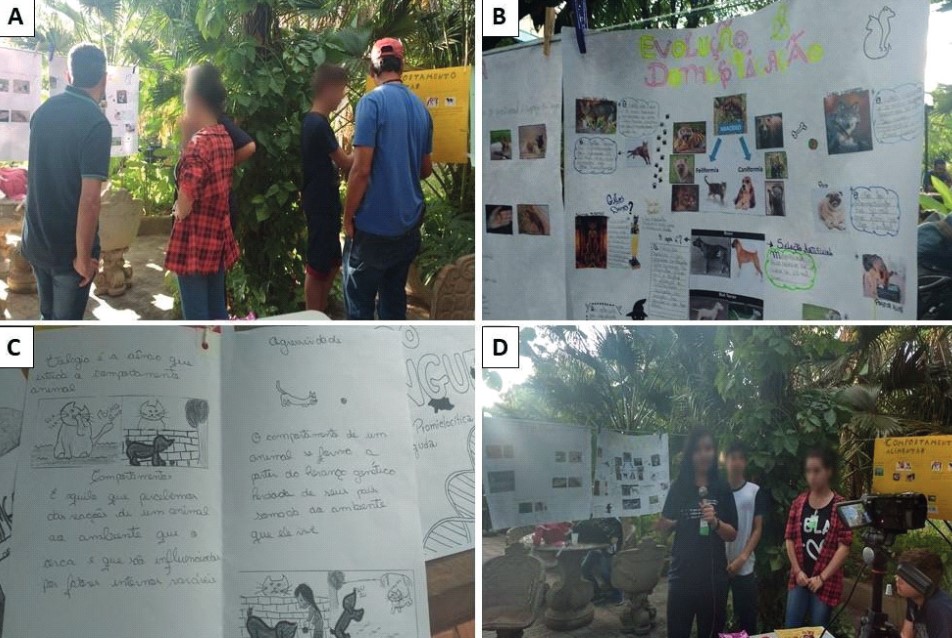

Over the course of 12 weekly meetings, the students were guided by Flavia Regina Bueno, a postgraduate student at FFCLRP-USP (photos: reproduction)
Extension project developed by students aged 8 to 15 at the House of Science of the Blood Center run by the University of São Paulo in Ribeirão Preto.
Extension project developed by students aged 8 to 15 at the House of Science of the Blood Center run by the University of São Paulo in Ribeirão Preto.

Over the course of 12 weekly meetings, the students were guided by Flavia Regina Bueno, a postgraduate student at FFCLRP-USP (photos: reproduction)
Agência FAPESP – Understanding animal behavior is the goal of a branch of science known as ethology. And understanding ethology was the mission of eight elementary school students, aged between 8 and 15, who developed a scientific initiation project entitled “Between meows and barks: unraveling the behavioral mysteries of our best friends.”
The research was conducted as part of the House of Science program at the Ribeirão Preto Blood Center (HEMOCENTRO RP) in São Paulo state, Brazil, which aims to bring scientific research closer to elementary school students and teachers. It is one of the educational activities of the Cell Therapy Center (CTC), a FAPESP Research, Innovation and Dissemination Center (RIDC).
Over the course of 12 weekly sessions, the students were taught by Flavia Regina Bueno, a postgraduate student in the Psychobiology Program of the Ribeirão Preto Faculty of Philosophy, Sciences and Letters of the University of São Paulo (FFCLRP-USP). Based on these classes, the students observed and filmed their own animals.
Topics covered included an introduction to animal behavior; play, feeding and self-cleaning behaviors; carnivore evolution; and domestication.
The results of this work were the basis for the article “Dogs and cats teach ethology to elementary school students,” published in December in Interfaces – Revista de Extensão of the Federal University of Minas Gerais (UFMG).
The full article can be read on the UFMG website.
Republish
The Agency FAPESP licenses news via Creative Commons (CC-BY-NC-ND) so that they can be republished free of charge and in a simple way by other digital or printed vehicles. Agência FAPESP must be credited as the source of the content being republished and the name of the reporter (if any) must be attributed. Using the HMTL button below allows compliance with these rules, detailed in Digital Republishing Policy FAPESP.





